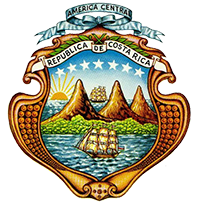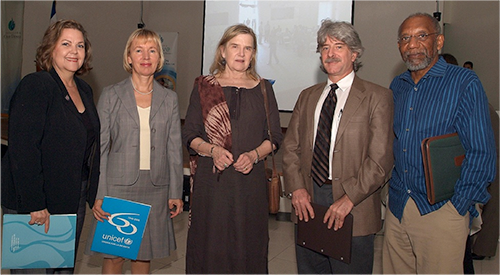Costa Rica - Cade Program History

The Development of Deliberative Capabilities (CADE) program in Costa Rica was founded in 2001. CADE grew out of a series of extended discussions, and reciprocal visits, between Felton Earls and Mary Carlson of Harvard University and Clotilde Fonseca and Maria Eugenia Bujanda of Omar Dengo Foundation (ODF). These meetings focused on the theoretical foundations and scientific evidence for design of a community-based intervention by Carlson and Earls that encouraged the capacities of Tanzanian primary school children for active citizenship. Skills in deliberation and critical thinking were emphasized in this intervention so that ”young citizens” could effectively involve their communities in health education and public engagement around the threatening epidemics of HIV/AIDS and malaria. The final form of CADE was formed by combining the CHASE-TANZANIA framework for community-based development of deliberative citizenship in young adolescents with the FOD innovations for digital technologies in primary school settings. Today, the CADE program is included in the Costa Rican national primary school curriculum.
INAUGURATION Of DEMOCRACY BUILDERS: YOUTH CAPACITIES FOR ACTIVE CITIZENSHIP (2007)

From left to right: Clotilde Fonseca, Executive Director Omar Dengo Foundation, Seija Toro, UNICEF Representative; Mary Carlson, Harvard Medical School; Leonardo Granier, Minister of Public Education; Felton Earls, Harvard Medical School and School of Public Health
MEP-FOD Program was created in 1988 as a public-private partnership between the Ministry of Education of Costa Rica (MEP) and the Omar Dengo Foundation (FOD) “to contribute to improving the quality of teaching and modernization of Costa Rican society”. An important social purpose of the MEP-FOD program was that these innovative programs began in schools in the most vulnerable urban communities and in one-room school houses in rural areas in order to “achieve equity in access to digital technologies”. By 2011, the MEP-FOD Program had reached more than a million primary school students from kindergarten to 9th grade across Costa Rica. From 2004 to 2011, CADE programs had been established in nearly 30 schools and had benefited roughly 1,000 children." In 2007, a new FOD-MEP program was inaugurated. This program, Democracy Builders: Youth Capacities for Active Citizenship, uses CADE principles to enhance the national civics education program for secondary school students.
Costa Rica - Cade Media
Omar Dengo Foundation
Omar Dengo Foundation (ODF) is a private, non-profit organization in Costa Rica that has developed and executed national and regional projects in the fields of human development, educational innovation, and digital technologies since 1987. ODF works in collaboration with the Ministry of Education. Its projects have benefited thousands of Costa Ricans, among them children and youth, educators, small business owners, rural communities, women, and senior citizens. It also boasts an large amount of knowledge and learning, derived from its frequent interaction with renowned experts and prestigious international academic institutions. This characteristic has allowed ODF to amass expertise in a broad spectrum of areas, resulting in its ability to execute numerous programs and projects, as well as generate products and services along different action lines. The collaboration with CHASE is the Development of Deliberative Capacities (CADE) Program referred to in this video that is integrated into the universal primary school curriculum.
Learning how to Deliberate
Deliberative Capabilities in School-Age Children Project (CADE) is a research and development initiative aimed to contribute to the development of active citizenship, deliberation, perspective taking and consensus building in elementary school children between 10 and 13 years old, through the construction and validation of an educational program supported by digital technologies. The project is being executed at Costa Rican public elementary schools. The Omar Dengo Foundation (FOD) developed this initiative, jointly with professors Mary Carlson and Felton Earls from Child Health and Social Ecology (CHASE) Project at the Harvard Medical School and School of Public Health. The project focuses on the development of critical thinking and interpersonal skills. Through it, the children address real problems that they select from their own communities and agree on solutions that they discuss and implement. CADE has developed its own “preferendum online,” a powerful web-based tool that is used to discuss topics, vote and reach agreements among children from different schools. The financial support for CADE comes from the National Program of Educational Informatics MEP-FOD, the CR-USA Foundation for Cooperation, IDRC-Canada and the Third Millennium Foundation.
Costa Rica - Cade Articles
Fonseca, C., & Bujanda, M. E. (2011). Promoting children’s capacities for active and deliberative citizenship with digital technologies: The CADE project in Costa Rica. The ANNALS of the American Academy of Political and Social Science, 633(1), 243-262. (pre-publication.pdf)